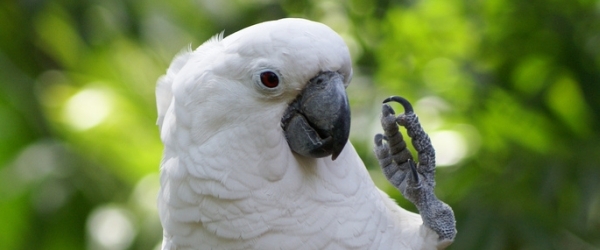Breeding Your Cockatoo birds is not as simple as it sounds, and breeding your cockatoo is a decision that should only be made after a lot of research and talking with experience breeders. To safeguard the health of your bird and his or her offspring, you need to be able to handle any situation you encounter.
Breeding Your Cockatoo
Breeding Your Cockatoo make sure you have the time and money necessary, as well as easy access to an experienced avian veterinarian. Also make sure you already have homes lined up for the new babies. If you are properly prepare breeding can be a positive experience.
Breeding
If you want to breed your cockatoo, make sure they are mature and healthy. Breeding birds need to bond and get use to their surroundings. The birds must be well fed and their new spacious cage must be clean.
Breeding
Most cockatoos breed well in captivity, but some species do not. In North America, the predominant breeding season is winter and spring, although some pairs may produce year round. Breeding age can be as young as three years, but hand-reared birds may not begin breeding before they are 8 to 10 years old, especially hand-fed males. The breeding life span of most cockatoos is not precisely known but is possibly up to 30-plus years.
Nest Boxes
Double-entrance nest boxes are often use to reduce the chance of the male trapping the female in the box. Large wooden boxes can be use size should be approximately 18 inches by 18 inches by 24 inches. Metal barrels, plastic pickle barrels and garbage cans can also be use. Grandfather-style wooden boxes can be use for certain cockatoo species since some species like a deep, narrow nest. Size should be approximately 12 inches by 12 inches by 24 inches or 12 inches by 12 inches by 36 inches. The size of the nest box will vary depending on the size of the adult bird.
Care of Chicks
You will need to check the nesting box every day to make sure the chicks are being fed properly. Offer fresh food and plenty of water daily. If the parents care for their young, you will not have to worry too much. However, first time or inexperienced parents may not care for their young, and you have to care for them.
Care of Chicks
Hand-rearing chicks takes time and the right equipment. You may need to place them in an incubator and hand feed them every 2 hours (commercial diets are available, to which you just add water). The feeding technique is not difficult to learn, but you should have your avian veterinarian show you how to do it properly. This is a critical period in the life of the new birds and it is during this time you may encounter a high rate of complications and mortality.